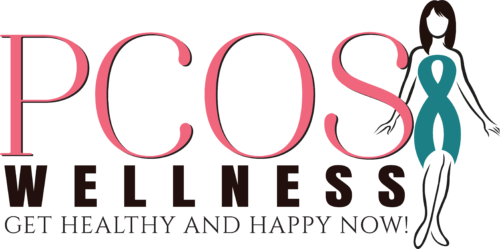
An Unfortunate Marriage: Sleep Apnea and PCOS
Sleep Apnea and PCOS
Nature is full of ideal pairings: peanut butter and jelly; cookies and cream; cats and laser pointers, and so on. Unfortunately, PCOS and obstructive sleep apnea (OSA), while frequently paired, are hardly ideal.
Obstructive sleep apnea is characterized by repeated episodes of partial or complete blockage of the upper airway during sleep, leading to loud snoring, gasping or choking, frequent waking, and poor sleep quality. This condition is often associated with obesity and, just like obesity itself, has reached epidemic-level prevalence in the United States, with estimates that 17% of the adult population has OSA, with that number jumping to 41-58% of overweight individuals.
Unfortunately, OSA is also much more common in women with PCOS. How much more common, you ask with a wince? Well, studies have found that OSA may be 30 times more common in women with PCOS, even after controlling for body mass, and that a whopping 70-75 percent of women with PCOS may also have OSA. Yikes!
Poor sleep quality is hardly the only downside to OSA. The condition, in conjunction with the ramifications of consistently poor or interrupted sleep, can lead to increased stress hormones circulating throughout your system, more severe mood swings, increased depression and anxiety, hypertension, stroke, coronary artery disease, insulin resistance and diabetes (as if we need any more risk of that!), and decreased mental clarity. Double yikes!
Often, conditions like PCOS, OSA, obesity, and diabetes play a kind of terrible chicken and egg game in which each condition exacerbates the others, and vice versa. Diabetes and poor sleep can lead to weight gain, which worsens OSA, which sends your stress hormones further out of whack, which keeps your androgen levels high, which causes further PCOS symptoms, etc. I’d say triple yikes but I think you get the picture.
Adding to the difficulty, because OSA is a medical condition, there is little a health psychologist such as myself can do on our own (even my powers have limits!). I can screen for OSA when I’m evaluating sleep problems, but ultimately, I’ll have to refer you to a medical doctor. So what do women with PCOS do about OSA? The first and most important step is to get tested for it and diagnosed — particularly if you find that you tend to snore, wake up frequently during the night, sleep poorly, or feel tired during the day frequently. More than likely, you will need a referral to a pulmonologist, a specialist who deals with the respiratory system.
Fortunately, OSA is often easily treated. Treatments may include bedtime additions such as nasal strips, a mouth guard, or a continuous positive airway pressure (CPAP) machine. While these devices may take some time to get used to, you will be amazed at how much better your sleep quality will be, and how much better that makes you feel overall. Research has also found that the vast majority of people with OSA do not even know they have it. If you are a woman with PCOS and you have one or more of those sleep-related symptoms I mentioned earlier, chances are, you are in this group. You deserve better. Get yourself diagnosed and treated, and you might just be amazed at how much your quality of life improves!
References:
Lee, W., Nagubadi, S., Kryger, M. H., & Mokhlesi, B. (2008). Epidemiology of obstructive sleep apnea: a population-based perspective. Expert Review of Respiratory Medicine, 2(3), 349–364. http://doi.org/10.1586/17476348.2.3.349
Tasali, E., Cauter, E. Van, & Ehrmann, D. (2008). Polycystic Ovary Syndrom and Obstructive Sleep Apnea. Sleep Medicine Clinics, 3(1), 37–46. Retrieved from http://www.sciencedirect.com/science/article/pii/S1556407X07001415
Session expired
Please log in again. The login page will open in a new tab. After logging in you can close it and return to this page.
